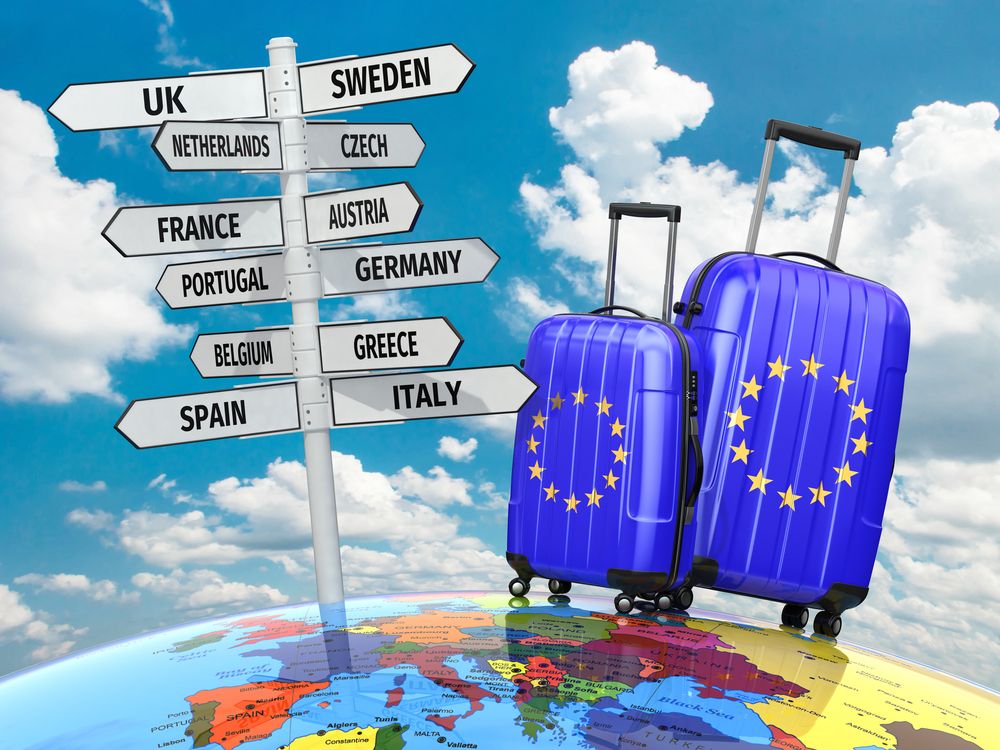Freedom of movement – free choice or last resort?

My parents migrated to provide their children with better opportunities. I moved for the adventure of studying and working abroad. Freedom of movement within the European Union is for some an opportunity while for others a last resort. Seeking a better life in the EU can become a poverty trap, and despite difficult situations some rather stay then return to the Member State they are from. This can further lead to destitution, discrimination and violations of rights (read our fact-sheet on intra-EU mobility for EU citizens). There are many factors that impact on whether people choose to move or stay, such as the living conditions in Member States which covers demographic changes, working conditions, pay, and socioeconomic realities. This situation was illustrated to me at an event recently by former European Commissioner Laszlo Andor, now with the Hans Böckler Stiftung; citizens from Romania and Lithuania tend to move due to poverty, unemployment and low pay, while citizens from the Czech Republic tend not to emigrate as the country has reduced its poverty levels and strengthened its social rights.
For some, freedom of movement is not even an option. At an event organised by the European Citizen Action Service on 12 April, Marie Denninghaus from our member European Disability Forum explained that people with disabilities face many barriers. Not being able to bring your carer when studying abroad, having your disability status not being recognised, costly assistive products and services depending on country-specific insurance, inaccessible information, transport and the built environment are just some obstacles people with disabilities face when faced with the prospect of moving to another Member State. The European Disability Forum is working on improving the right to free movement for people with disabilities by advocating for the recently adopted Web Accessibility Act and the European Accessibility Act that is under negotiation, as well as by promoting an EU Disability Card and inclusion of accessibility as an award criteria for public procurement (see Ms Denninghaus’s presentation).
Housing, entry requirements and social security are the main concerns of citizens exercising their right to free movement, said Antoine Fobe from Your Europe Advice at the same event (see the report and infographic). In a time when it is more important than ever to demonstrate the EU’s added value, we are unfortunately witnessing Member States and public authorities increasingly looking for exceptions to restrict EU law, said Mr Fobe; denying benefits when without presentation of an EU residence card (even though EU citizenship does not require one) and an unwillingness to cooperate with administrations in other Member States are just two such examples. No Member State has yet implemented correctly the Directive on EU freedom of movement and residence, said Anthony Valcke from the EU Rights Clinic. As an example, the Swedish Population Law requires residents to have a personal number (“personnummer”). A personal number is compulsory to access all types of services, such as renting accommodation, opening a bank account or obtaining medicine. In order to get a personal number one has to demonstrate residence in Sweden for more than a year, which often excludes among other groups students, home makers and pensioners (see Mr Valcke’s presentation).
The European Commission shared what they are doing to improve free movement, from a justice, internal market and employment perspective. The Commission has developed several free online tools such as Your Europe Portal for information about citizens’ rights in all EU languages, SOLVIT for both individuals and businesses, and information about the EU internal market. The EU Citizenship Report 2017 includes information about the Commission’s actions and is available in all languages. On the basis of the report the European Council will adopt conclusions on citizenship. Thanks to individual workers the European Court of Justice has developed case law protective of freedom of workers. There are 11.3 million people living in another Member States, and mobility is overall a win-win situation for individual workers, companies, and receiving and sending countries. Obstacles are not about how the law is drafted but the application of it by national authorities. The Commission therefore encourages Member States to set up bodies that inform mobile workers about their rights and access to justice.













































